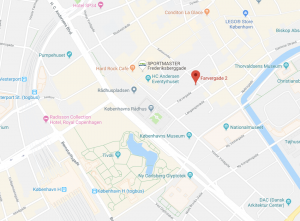A colonoscopy is performed to determine the condition of the large intestine and to identify potential diseases such as intestinal inflammation, polyps, narrowing or intestinal cancer. The examination is carried out with an endoscope (a flexible and maneuverable tube) that makes it possible to examine the inner part of both rectum and colon. The endoscope is also used for treatment and sampling, as devices can be directly inserted into the area, and samples from the intestinal mucosa can be removed.
Before the examination
It is important that you inform the doctor about any preexisting conditions in the consultation prior to the examination, particularly if you suffer from diseases that relate to the heart, kidneys and lungs.
The bowel has to be thoroughly cleaned, using “picoprep”.
You can pick up the cleansing medicine in the clinic.
The day before the examination
21.00: Take the first Picoprep solution and drink 1.5 liters of clear liquid – preferably over the course of the next 3-4 hours
What to eat the day before:
Breakfast: boiled egg, white bread, coffee / tea
Lunch: Must be consumed before 12:00. Cooked fish or chicken, white rice, pasta (soft), boiled (and peeled) potatoes and white bread.
24 hours prior to the actual examination it is best if you only consume clear fluids- including water, soup (preferably thin and clear), apple juice, juice, and soft drinks.
Examination day
Take the second Picoprep solution 4 to 5 hours prior to the examination, drinking 1.5 liters of water with the ingestion, and also in the hours leading up to the examination.
On the day of investigation and until the actual examination is over, only drink juice and water.
How to prepare the Picoprep solution:
- Take a glass of 150ml. cold water.
- Pour the powder from the packet into the water.
- Stir the mixture for 2 – 3 minutes.
- When the powder is dissolved, the mixture is ready and ready to drink.
The mixture will be cloudy / off white. Drink the mixture – preferably within 15 minutes.
Then drink 1.5 liters of clear liquid – ex: water, apple juice, broth, tea, coffee, juice,
Picoprep is a laxative whose effects start to set in 1 to 4 hours after ingestion. The timeframe of the effects varies greatly, and it is therefore advisable to be near a toilet.
The examination
You will get an iv and a sedative. You will be awake, but drowsy, like when you have ingested 1-2 bottles of wine.
During the investigation, the patient is on his left side, after which the endoscope is slowly inserted into the intestine. During the examination, it may be necessary to change positions to ease the insertion of the instrument. The examination itself typically lasts between 15 and 30 minutes.
For best results, it is necessary to insert air into the intestine of the patient during the study. This causes most patients some discomfort. The discomfort consists of pressure in the stomach. The air is removed at the end of the colonoscopy.
It is the pulling in the colon, that causes pain. Usually patients will have 0-2 brief (10-20 sec) episode of abdominal discomfort during the procedure.
After the examination
You will receive the results of the examination immediately. If tissue samples have been collected during the study, the results of these are available after 1 to 2 weeks.
You can resume normal food intake after the examination.
Due to the sedation you must not drive the rest of the day. You must arrange for transport home, usually taxi.
Sometimes the sedative results in amnesia of the procedure, this is harmless.
Risks in colonoscopy examinations
Risks for complications in colonoscopies occur especially in the removal of larger polyps, and consist of bleeding or perforation of the intestine. The risk is about 1 out of 2000 studies, and may result in immediate hospitalization and operation.


